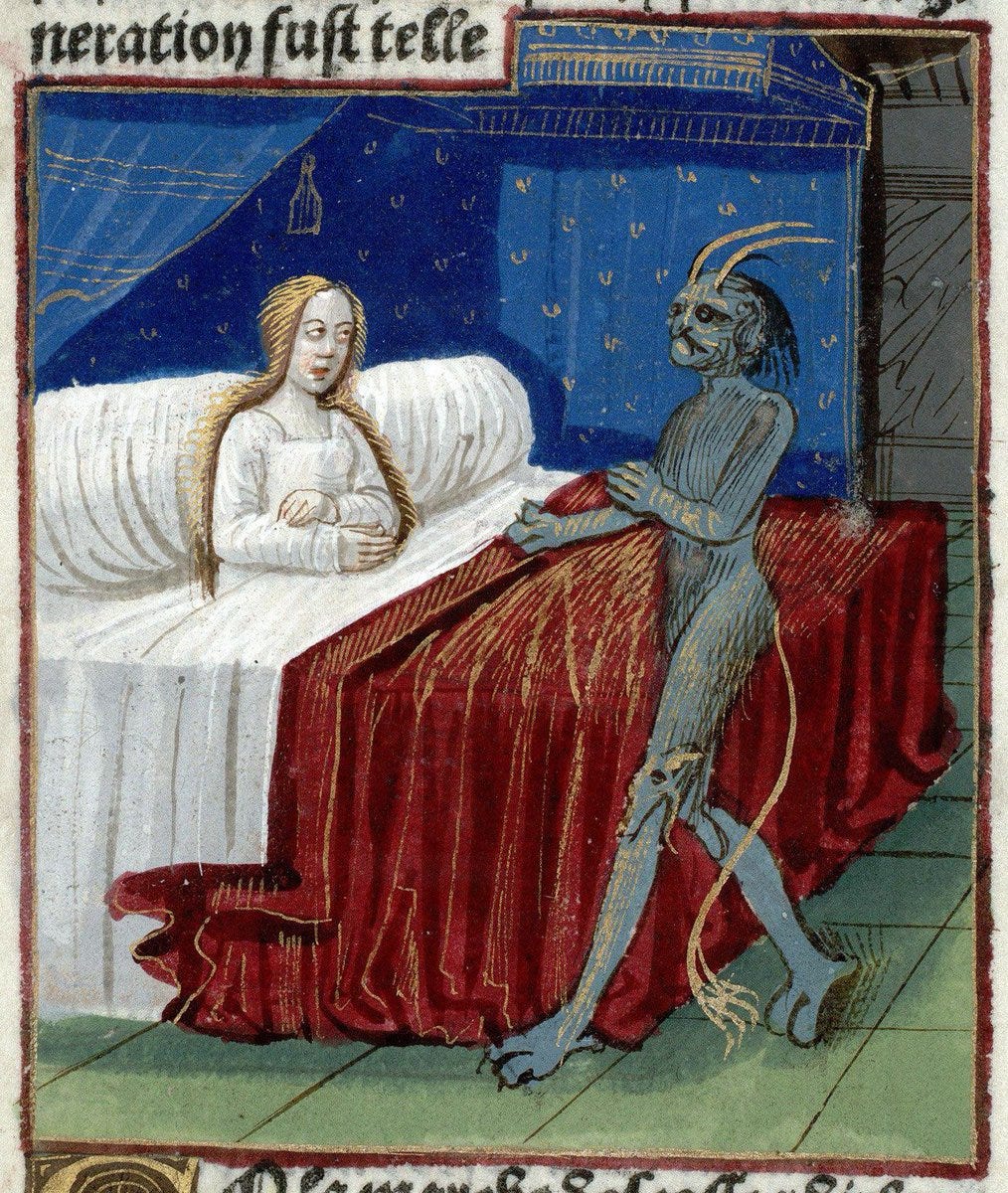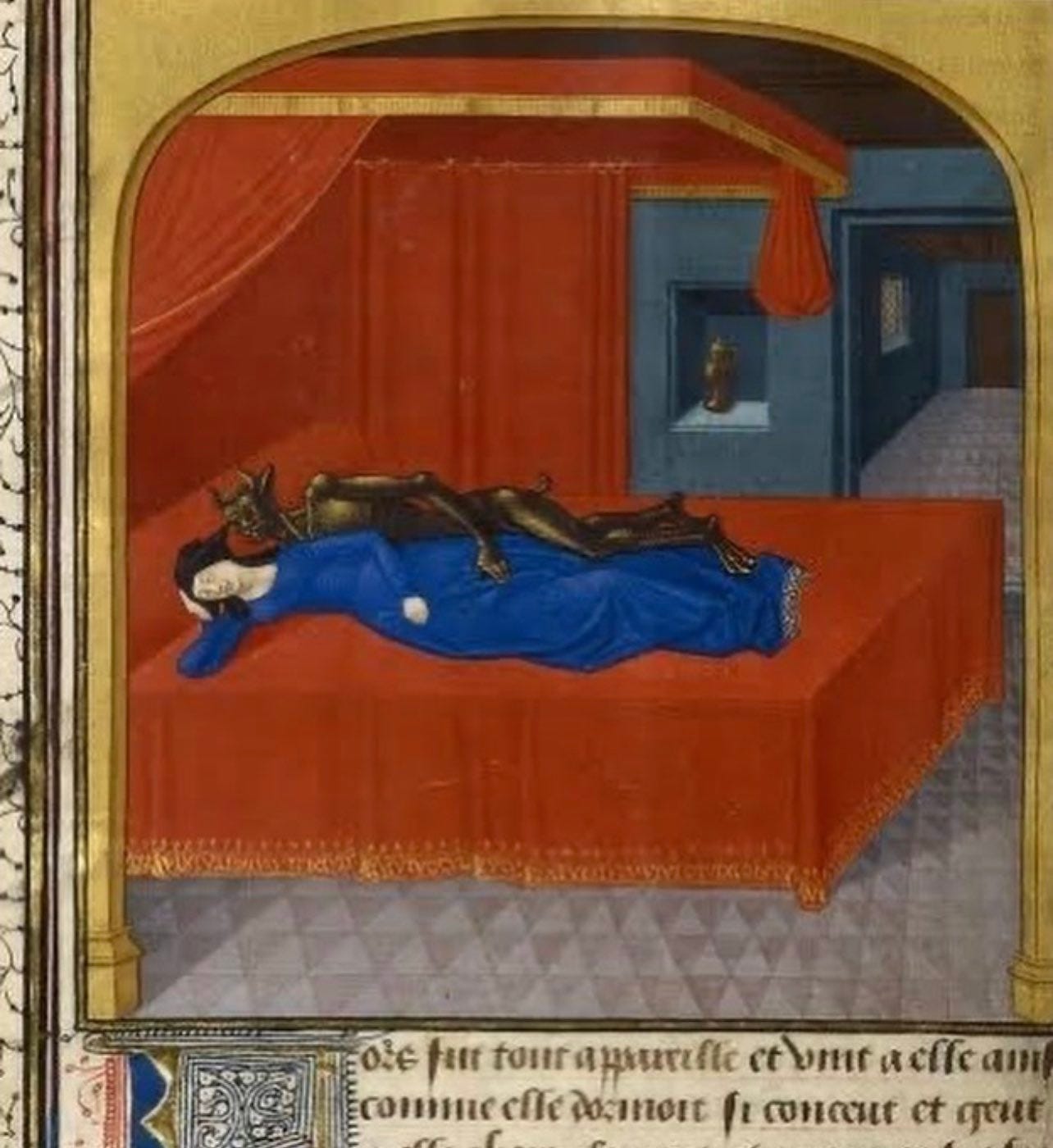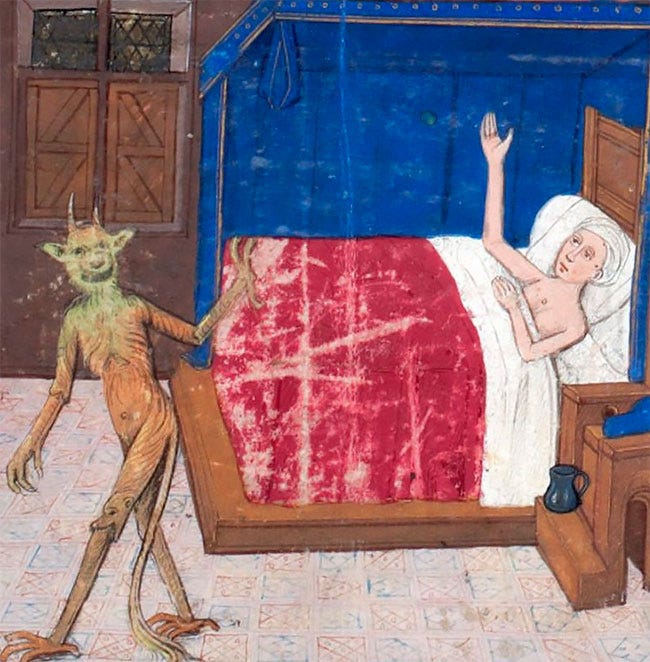Welcome to Rhyming Dictionary
figuring out what sex means, and why it rhymes harder than the worst poetry in the world

Welcome to Rhyming Dictionary
My entire adult life I have wanted to write honestly about sex. Love and sex.
Actually if I’m honest this is something I dreamed of doing before I knew what adult life and love and sex would even be like. As a child it didn't ever occur to me to wish for happiness, for example, or fulfilment in love. All I wanted was strong emotions and big experiences and the freedom to express them absolutely.
That's what I imagined as wealth. The freedom to really experience whatever it was that was happening. And to express it back into the universe, my way.
The problem with all that is-- poetry is better than prose for conveying what it actually feels like to love-- to fuck-- how it's somehow in the air around things, not in the acts themselves, how it's even the grain of the voice or the shortness of breath or the intensity that moves through words-- not the words themselves-- that evoke the real truth of the matter.
I don't want this project to be, to quote John Ashbery, "some sodden dump or lament"— but there are things I need to analyze. Like a surgeon with a cold blade, and maybe warmly too, like a jocular literary critic with a named chair at a university that does not exist.
There is crazy rhyme-- like an overkill and in poor taste amount of rhyme-- in, ugh, forgive me for using this cringe twentieth century phrase, "my love life."
And furthermore. As it turns out, even a cultural dropout— an experimental poet— can get repressed and find herself keeping secrets she never intended to hide— even from her own self.
I’m talking about rhyme as a poetic device and also the somewhat trashy phenomenon of doggerel and overkill. Why is it sometimes partner after partner has the same name? Why and how is it that certain patterns echo and repeat as lust evolves? What does it feel like when you notice you might be a rhyme for someone else? And what is it like– what does it feel and talk like– when you encounter something wholly new with someone— in someone. When the proverbial scales fall from your eyes and you really see– or seem to see– the person before you, in their total reality?
In other words, when is sex actually magic— or when does sex give birth to magic.
You might be thinking– if you know my books at all– I mean, woman, you have been writing honestly about sex for years. But I haven’t, not really. Not the way I dream of.
I’ve tended to insist on the negative aspects of romance and courtship– because those are the funniest, and because they open themselves easily to writing and analysis. But also– I think it’s kind of socially unacceptable for a woman to express pleasure, fulfillment, bliss. It’s scary and off-putting. It triggers some kind of primal desire to see that woman dishonored and destroyed. So I’ve been scared I think to show that. I think I’ve unconsciously played into this social taboo my entire career– publishing laments while keeping my odes and raptures to myself.
I want and need practice working out some of the stranger, more mystical, and also more blissful twists and turns of love–heretofore confided only to my notebook and to my closest friends.
I recognize that this is going to seem frivolous to some people. Especially at such a time, when the culture is saturated in war and death, there’s a global crisis of leadership, and widespread spiritual destitution. But I’m also attracted to doing this now because, I guess, it’s wrong.

Sex is the most fascinating and the most dangerous thing I do. I’m not that promiscuous, especially not compared to some of my gay man friends– but what really interests me is how desire, philosophically speaking, has a way of breaking and changing– transforming and transmuting– my mind.
I’m interested in how and where desire becomes evolutionary, and how and why it can also be orgiastically and idiotically regressive.
And also: why in the name of the Infant of Atocha, Mary Magdalene, the heights of Macchu Picchu, and Jesus Mary and Joseph is it so very seldom one sees sex honestly written about. That’s an exciting place to go: the place where so many are most tempted to lie.
I am hopelessly attracted to the edge of what can even be said, or spoken. It’s my desire to study that edge and figure out, if I can, how to write it. It may also be that ultimately these energies aren’t really for writing– so I want to carve out space at the outset to say– maybe these investigations turn into music, or dance, or some kind of movie– maybe they aren’t meant for fiction or essays or the page or the screen. Rhyming Dictionary could be a studio space and a rhythm for me to start organizing my thoughts and working some things out.
I’m thinking back to something I remember reading in Blanchot— about the charge that enters writing when it genuinely breaks a silence.
That’s why it’s exciting to try and work these things out with whoever might resonate with this effort. I know I will learn something.
There’s a culture for this kind of writing in gay, especially gay masc/gay male literature. I’m thinking of the writing of Dennis Cooper and more recently Garth Greenwel and Brontez Purnelll. I’m also thinking of lesbian masterpieces like Eileen Myles’s Maxfield Parrish and Laurie Weeks’ Zipper Mouth. We all know how much the world hates bisexuals and women (sorry world!)-- and probably nobody’s experience is less marketable right now than this particular category. See above re my desire to do things that nobody wants / that are wrong.
David Wojnarowicz has been a personal icon of sex writing for me since I first read him in the early two thousands. The way he describes men and fucking them is extremely special, I think, because he is never, ever unkind about his partners– even when he doesn’t want them, even when he is turned off. This is extremely rare and important. The disgust/desire spectrum.
It’s been my experience that few people on this earth really really love women. Lots of people have sex with women but they don’t like or love them. They are fucking with loathing, desire to possess/control, desire to bury/hide, and so on. When I encounter someone of any gender that actually loves and appreciates a woman, women, womanliness– I pay attention. And I myself am such a woman. I love women. I will never, ever participate in another woman’s defaming or destruction. I can’t even hurt a woman who breaks my heart. But I am comfortable causing men pain— more on that later.
Another thing. I don’t think I’ll be writing “erotica” here. Aside from the fact that I hate most writing about sex— another reason to attempt this ridiculous thing here— I especially hate what happens when writing “tries” to be “sexy”. But some of the most magnificent writing somehow has a powerful erotic charge– for example I have always considered W.G. Sebald a deeply erotic writer– and I don’t think there’s anything literally about courtship or romance between people anywhere in anything he wrote (correct me if I’m wrong.) For me, the erotics of Sebald is in the sentences themselves and in the movement from one thought to the next– it is as though every idea is inseminated by what comes before and what comes after is a kind of birth– which is why and how the experience of reading Sebald really is like being fertilized– and the experience of thought, the experience of the way his writing becomes walking while also becoming a perambulation through time and space– is an entire seduction back into your own brains.
What I mean to say is, what I write here is not necessarily going to be “sexy”. And I need to free myself from that constraint from the get-go, partly because it annoys me so much how stupidly people write when they are trying to be sexy. I would find the enterprise entirely paralyzing if such were the case.
I often view the history of literature according to sexual dynamics. For example, I have a pet theory (unproven as yet, but currently being empirically tested) that the novel as a form emerged as a consolation to and seduction for aristocratic women (in France for example), who had great internal sophistication while living circumscribed lives. Thus the conventions of the novel– and likewise the underpinnings of what we today understand as “romance”-- had feminine pleasure as their goal.
The idea of pleasing women as a cultural virtue is something that interests me a great deal, and that I take seriously. In troubadour and trouvere culture, pleasing the (usually feminine) object of desire is the poet’s total goal, no matter what the gender of the poet happened to be.
But the consequences for having any sexuality whatsoever in my work have been extremely severe. People make assumptions about me. I had to sue a university over a harassing tenured creep who preyed on his female students and colleagues. I’m a scorpio and I don’t love having people in my business, gossiping about my personal life, or assuming they know what I’m thinking and feeling. People have a way of over-identifying with me. I’ve also had an issue with stalkers and trolls since the start of my career, and given that I don’t make enough money to be hidden behind a well-gated property, the stakes of my telling the truth– and I always tell the truth when I write– even when I write fiction– are high.
I didn’t even have a real author photo for most of my career, I don’t post hot pix or (that many) thirst traps, and to the extent it was possible I avoided “using” any physical allure I might have ever possessed to attract readers and followers. That doesn’t mean I haven’t loved fashion and performing, or– during the years I toured relentlessly all over the world, ugly skinny from drug addiction and with a face helmeted in acne– wondered what it would be like to be a woman well settled in her gender and glowing, comfortable with her image and persona. What I mean is— I wanna investigate the sex of sex. I’m not here for vaudeville or to do tricks to make you want me.
Since my mother’s suicide last fall, though, a lot of bodily suffering has been falling out of me. I feel for the first time in my life that I have every right to be in my body, and that my own experiences are mine to make from— that this is my real estate, my property— and I am free to cultivate this space as I choose.
Mostly, in the tradition of Michel de Montaigne, I want to find a way— even if I have to invent a new form— to give of myself as wholly and truly as I can.
One way to understand Rilke, for a different example, is that, this was a man who knew how to talk to and how to seduce women. Every now and again you meet someone who knows– really knows– how to talk to you. But in large part I feel like these arts of seduction are being culturally forgotten. The paths to a human being’s heart are not that twisty, but I’ve noticed, especially among intellectuals– my least favorite people to fuck by the way– that they have no trouble connecting to their brains and to their genitals. But so many of them– so many of us– are clueless, and I do mean clueless, about our own hearts, and very VERY clueless about mine.
So. Studying rhyme here is a practice space for talking to my own heart, and listening for its answer. I just know there’s a there there.
So. Welcome to RHYMING DICTIONARY. I really hope I can maintain the courage and groundedness to write with honesty and insight about the most fascinating thing in the world (to me).
I’m working on two books and several related projects right now, so this space will be something of an open studio to test and work things out. Things will come out Mondays, Wednesdays, and Fridays. This isn’t a business venture, but because many of the things I need to work out are intensely personal, most of the good stuff will before paid subscribers only— just to keep out the riffraff. I know— so many substacks these days and it’s impossible to subscribe to all of them— but this seems like the simplest way to mark out a perimeter that will make it somewhat safer for me to take the kind of risks I want to take.

OK. Wow, this was weirdly scary but also freeing to write! Thanks for being here. See you Friday.
Love,
Ariana



